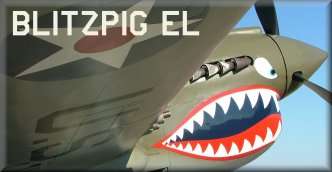
 |
|
#11
|
|||
|
|||
|
Quote:
On all levels. (It's usually what happens when the lunatics take over the assylum) I'm forever gratefull to German WWII 'intelligence' Last edited by winny; 06-04-2011 at 01:18 PM. |
|
#12
|
|||
|
|||
|
Could we please stick to topic instead of country bashing of any sort?
|
|
#13
|
|||
|
|||
|
http://www.amazon.co.uk/First-Blitz-.../dp/0552155489
I can highly recommend this book to anyone interested in the German bomber campaign against Britain during WW1. As for Britain only winning due to bad German strategy... I lol'd. The Luftwaffe was getting its arse handed to it in June 1940 by the AASF and continental air forces. Where do you dream this crap up? Even the Polish Airforce did remarkably well against it. In 1939 the Poles managed to destroy 285 German aircraft, for a total 333 aircraft lost. Not bad for an airforce which was flying relics a which were a generation behind the Luftwaffe and outnumbered by almost 10 to 1. Sorry dude but your much vaunted Luftwaffe is just a propagandists dream. |
|
#14
|
|||
|
|||
|
I feel slightly ignored ...
On a more factual basis and hopefully on a less bashing tone that settled in a couple of threads ago (it closes in on youtube comment level): I too think that the Luftwaffe is usually overestimated. It had at the beginning of the war machines that outclassed usually the opposing types. They had a minor advantage in experience and tactics over a short time. This changed progressively with the campaign in the West, where they encountered the more advanced planes that were close or equal in performance and when the pilots gained more experience there. With slower pace the same happened in the Eastern campaign, when initially the Soviet planes were completely outclassed and pilot experience was bad. They cought up later. It ended up in a number game during the last stage of the war. PS: The German planes lost in Poland were mostly lost to ground fire not Polish planes that had been primarily destroyed on ground. Last edited by 41Sqn_Stormcrow; 06-04-2011 at 01:09 PM. |
|
#15
|
|||
|
|||
|
Quote:
 'In the 1966 world cup final, England still only avoided defeat owing to faulty German strategy' 'still only avoided defeat' - you mean 'won' yes? Here we go again. 'The Luftwaffe were great, the Brits were crap and didn't really win, the Germans just had more important things on the agenda and decided to retire from the game'. German Strategy is only one factor amongst many. The Luftwaffe got their arses kicked in goodstyle. Game over. Last edited by ATAG_Dutch; 06-04-2011 at 07:59 PM. |
|
#16
|
|||
|
|||
|
Oh crap sorry mate, It's like playing tennis with someone who keeps lobbing tha ball at you. I just couldn't...
You know. My bad. |
|
#17
|
|||
|
|||
|
"230 aircraft were destroyed in action, primarily by Polish fighters and anti-aircraft artillery."
- Cynk, Jerzy B. The Polish Air Force at War: The Official History, 1939-1943. Atglen, PA: Schiffer Military History, 1998 We'll split the difference huh? |
|
#18
|
|||
|
|||
|
Back on topic....
British WW1 squadrons operated from such airfields as Biggin Hill and Manston. I own an original Log Book from a Home Defence pilot. He flew with 50 Squadron 'C' Flight. On 22nd August 1917 he wrote in his Log Book that whilst on patrol with his Be12 Flight, they attacked a formation of Gotha bombers. He fired over 70 rounds. He also flew many anti-Zeppelin night patrols. Interestingly, Winston Churchill was responsible for the defences at an early stage. There's a recently discovered Royal Flying Corps airfield in Essex on the approach to London. This was home to 37 Squadron whose role was the defence of London. They aided in the destruction of a Zeppelin. The airfield is known as Stow Maries and I've been there several times. http://www.stowmaries.com/ Best Regards, MB_Avro. |
|
#19
|
|||
|
|||
|
Quote:
Quote:
From: The Luftwaffe in the Polish Campaign in 1939, by General der Flieger Wilhelm Speidel.
__________________
Il-2Bugtracker: Feature #200: Missing 100 octane subtypes of Bf 109E and Bf 110C http://www.il2bugtracker.com/issues/200 Il-2Bugtracker: Bug #415: Spitfire Mk I, Ia, and Mk II: Stability and Control http://www.il2bugtracker.com/issues/415 Kurfürst - Your resource site on Bf 109 performance! http://kurfurst.org 
|
|
#20
|
||||
|
||||
|
The fact remains that the Luftwaffe lost a lot of aircraft, both in Poland and in the Battle of France, that seriously degraded their abilities.
Add the losses between the time of Dunkirk and the "start" of the BoB in August and it is clear that the Luftwaffe could not sustain a campaign to "take" Great Britain. It's laugable to think that they could. The mistakes made by Hitler, Goering and the OKL only added to the issue. The Luftwaffe was a very young service. There was no depth of experience in their officer corps, unlike the RAF, which is of course the world's oldest independent air force. Like most of the German High Command, they suffered from strategic blindness. Too concerned with tactics and not enough with logistics.
__________________
 Personally speaking, the P-40 could contend on an equal footing with all the types of Messerschmitts, almost to the end of 1943. ~Nikolay Gerasimovitch Golodnikov |
 |
|
|